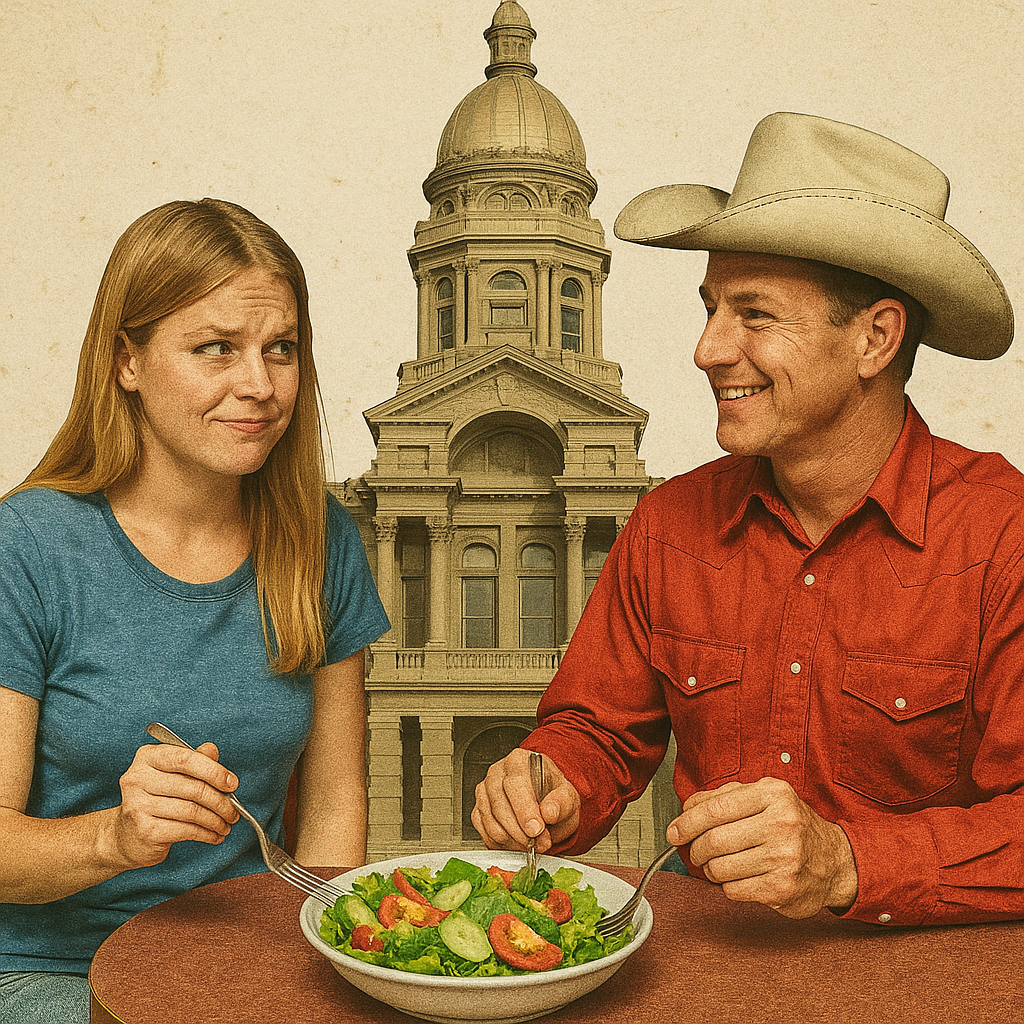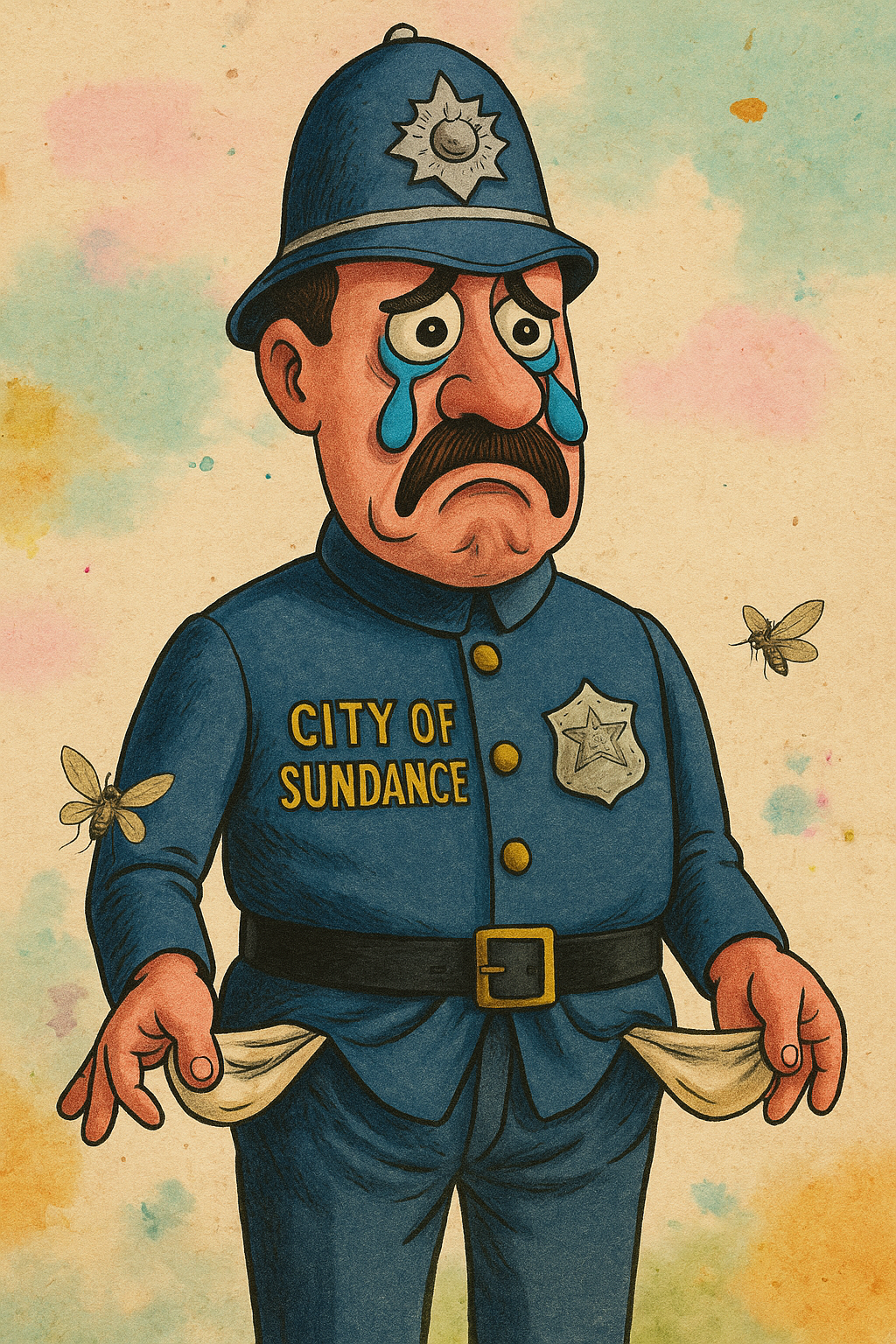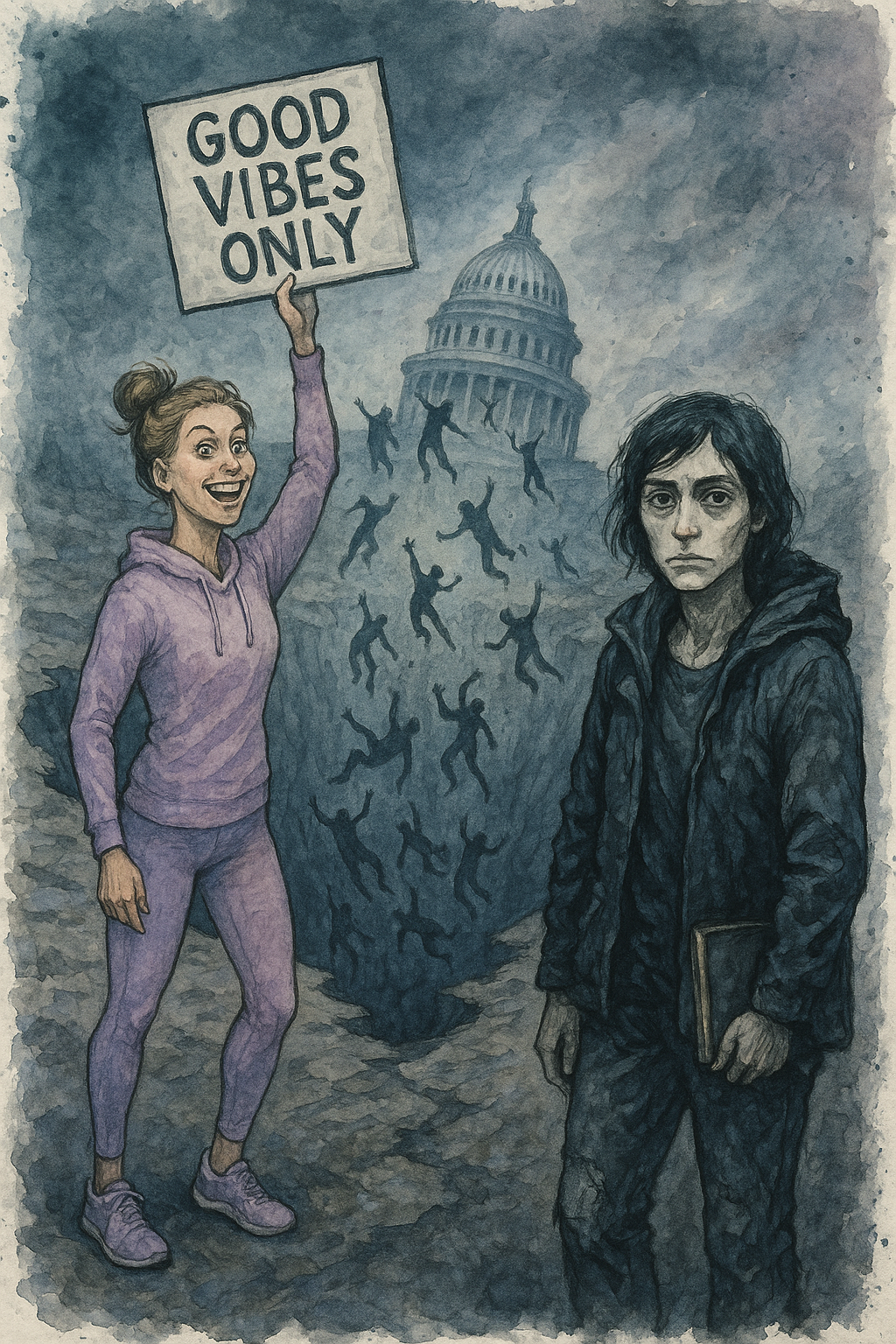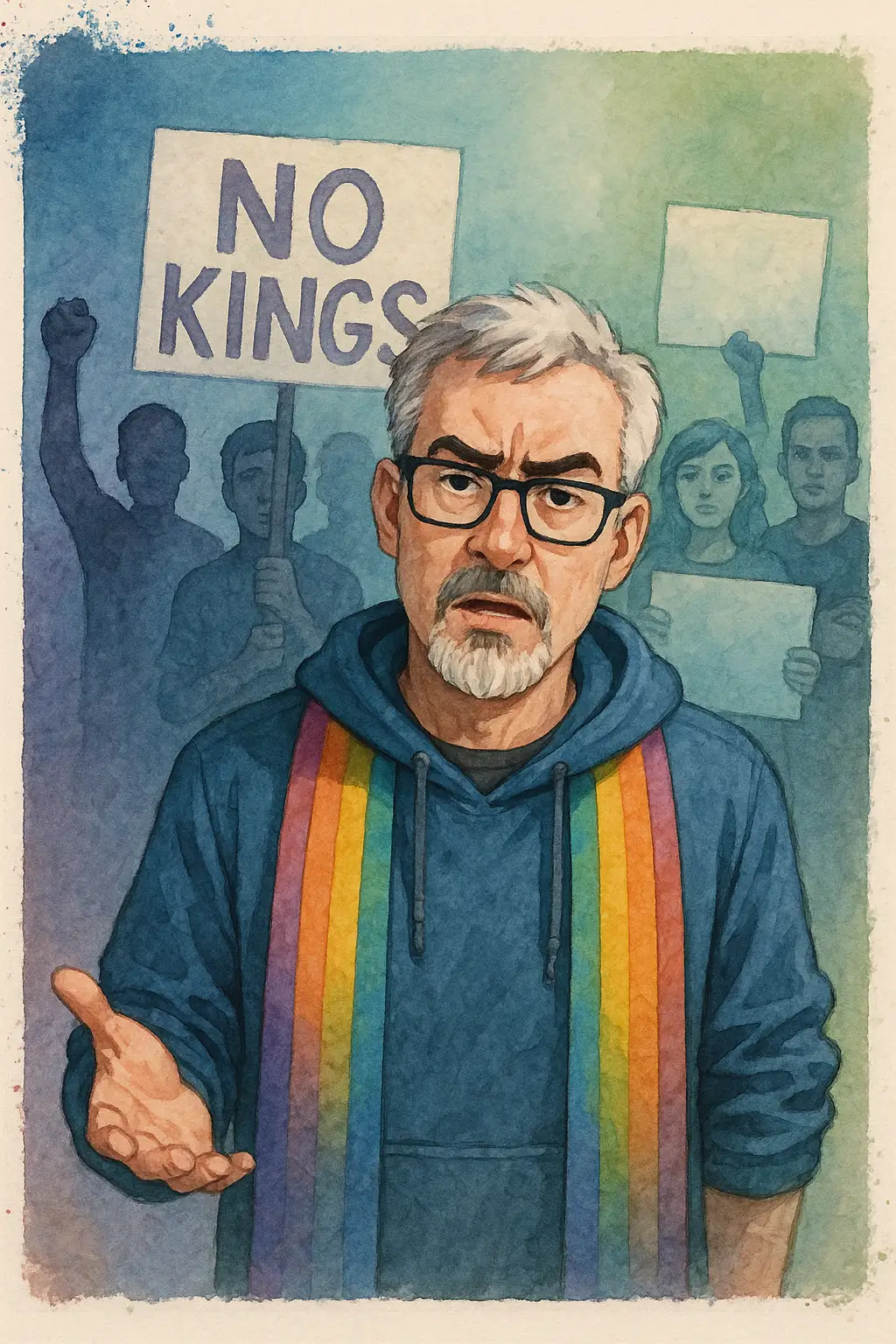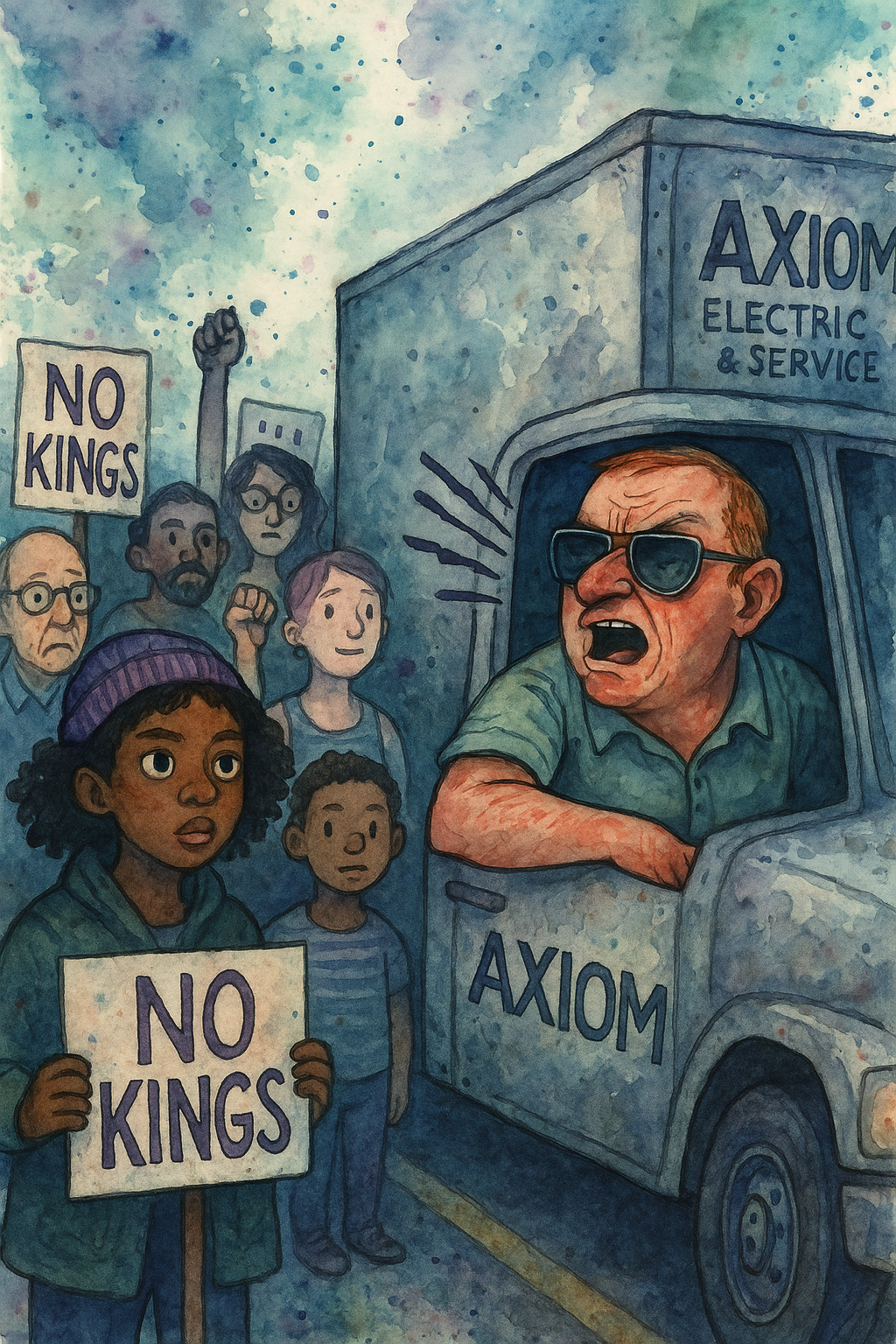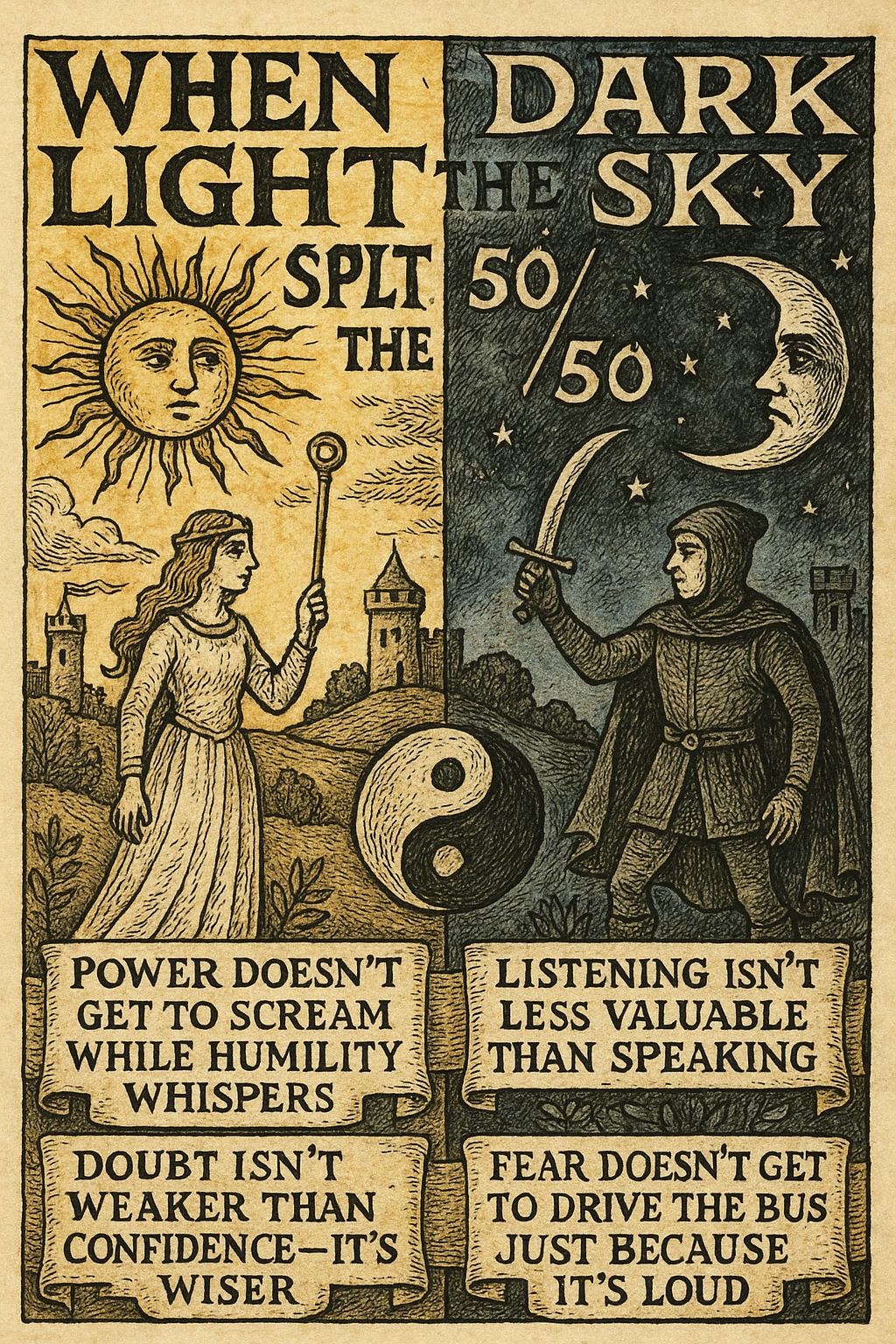I’m not here to gaslight anyone—Wyoming is conservative. Deeply, historically, and institutionally conservative. It’s been that way since before we had stars on the flag. But what’s also true, and less often said, is that Wyoming’s frontier history gave rise to two seemingly contradictory values: the “rugged individualism” beloved by modern conservatives, and a culture of communal cooperation that helped shape American progressivism.
We don’t just call ourselves The Cowboy State—we’re also The Equality State. And sometimes, in ways that surprise even longtime residents, we live up to both.
This is the first in a series examining how life in Wyoming defies simple ideological labels. “More liberal than you’d think” might not be the most ambitious claim, but let’s be honest—it doesn’t take much.
Defunding the Police (No, Really)
Let’s start with the small town of Sundance, seat of Crook County. A few years ago, Sundance faced a budget crunch. The town had a three-person police department—and keeping it running wasn’t cheap. So, when impending retirements lined up with rising costs, city leaders made a pragmatic call: they disbanded the local police department and contracted with the County Sheriff’s Office for law enforcement instead.
I hadn’t moved here yet, but if I had, I’d have supported it.
Now, let’s be clear: no one made this decision out of concern about over-policing or civil rights. This wasn’t some progressive crusade. It was just math. The Sheriff was already headquartered in town. Consolidating services saved the city around $100,000 a year.
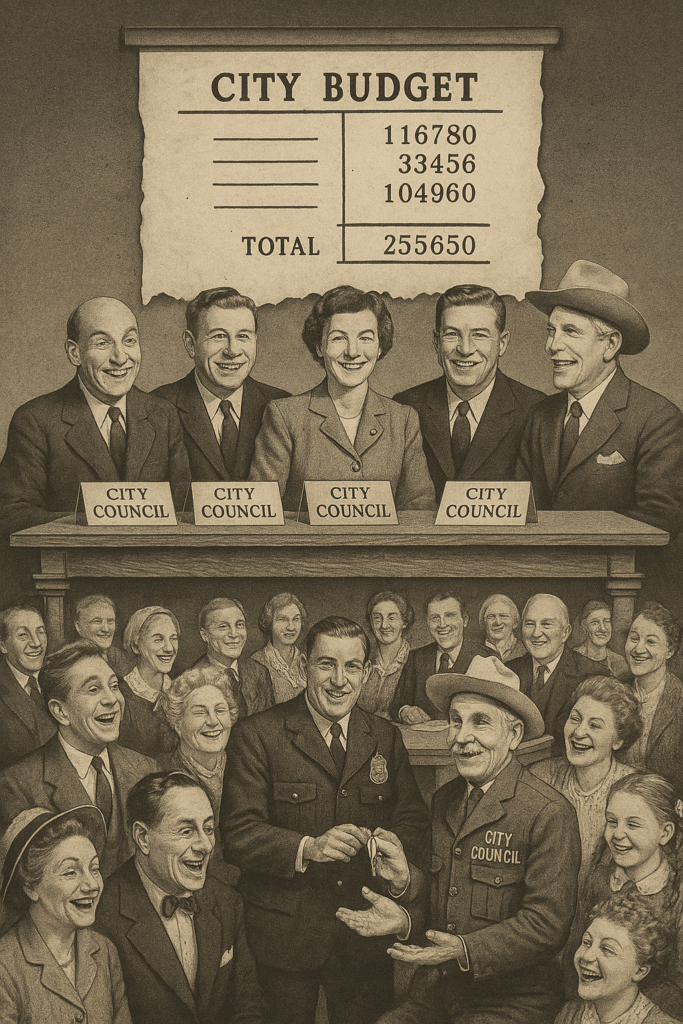
So yes, Sundance defunded the police—not as a political statement, but because they had no funds to fund them with. The result? The sky didn’t fall. The town didn’t collapse. No roving gangs of horse-bound criminals. Just a new line on the budget, fewer uniforms with “City of Sundance” patches, and a little less overhead.
It wasn’t idealism. It wasn’t activism. It was just doing what worked when the old way didn’t. And maybe that’s the most Wyoming thing of all: we didn’t have the luxury of doing it for the “right” reasons, so we did it for the real ones. It’s messy, imperfect, and—if you squint—kind of brilliant.
Which, frankly, is exactly what it looks like when failure does its job properly.
Because here in the Cult of Brighter Days, we believe failure isn’t just inevitable—it’s foundational. Trying something, watching it fall apart, and building something functional from the wreckage? That’s not defeat. That’s the process. That’s growth. That’s the weird, unglamorous machinery of resilience.
And every now and then, even a place like Sundance reminds us: progress doesn’t always wear the outfit you expect.
